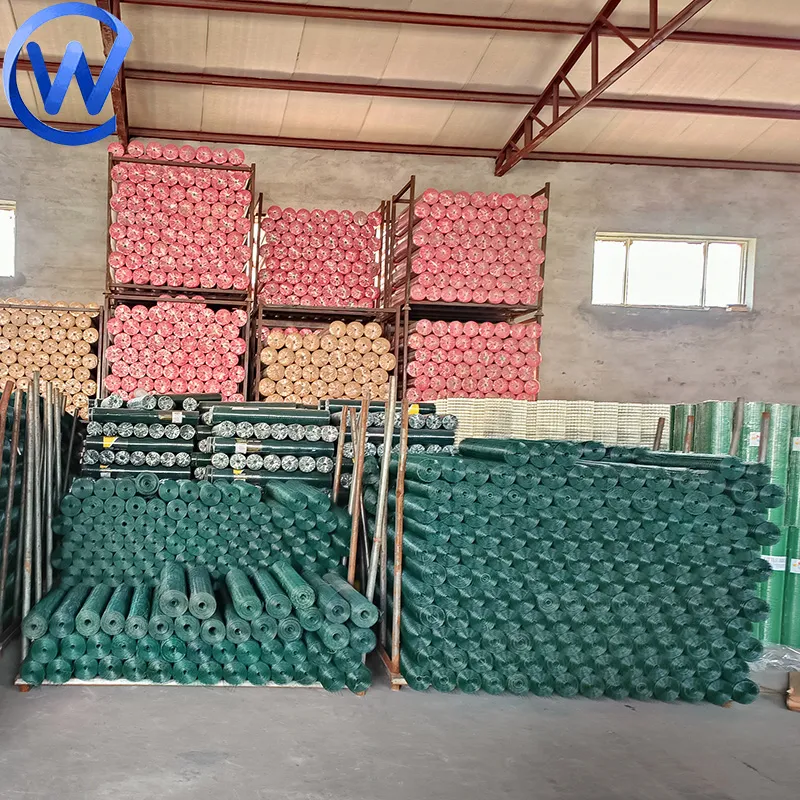-
+86 15030157877
-
sales@galvanizedmetalmesh.com
Oct . 01, 2025 11:25 Back to list
Galvanized Welded Wire Mesh: Durable, Rustproof—Why Us?
Field notes on galvanized welded wire mesh: what actually matters on site
I’ve walked enough job sites—from poultry houses in Hebei to food plants in the Midwest—to learn that mesh either survives and saves money, or it corrodes and becomes tomorrow’s headache. With galvanized welded wire mesh, the small choices (zinc weight, weld integrity, post-treatment) turn into big outcomes. Let’s cut the fluff and get into the real stuff buyers ask me about.

Where the market is headed (and why it matters)
Trends? Hardening biosecurity in poultry, more humane animal enclosures, and a quiet boom in urban agriculture. Add to that facility managers demanding longer maintenance cycles (thank you, ESG). Result: rising demand for galvanized welded wire mesh with heavier zinc and cleaner welds. Prices have stabilized after last year’s wire rod volatility, but lead times still swing when hot-dip lines run full tilt.

How it’s made (quick but technical)
- Materials: low-carbon steel (often Q195/Q235) drawn to wire, then resistance spot-welded on automatic lines.
- Galvanizing options: pre-galvanized wire (weld then zinc touch-up), electro-galvanized after weld (bright, thinner coat), hot-dip galvanized after weld (ISO 1461 grade; thickest, most durable).
- QC and tests: zinc mass (ASTM A641 / ISO 1461), weld shear (ASTM A185/A1064), salt spray (ASTM B117), adhesion bend test, coating continuity checks.
- Real-world service life: ≈5–10 years coastal/light industrial; ≈10–20+ years inland, depending on zinc mass and exposure.
Typical product specs (Welded Wire Mesh)
| Parameter | Spec (≈ real-world) |
|---|---|
| Wire diameter | 0.6–4.0 mm (20–6 AWG) |
| Mesh opening | 6×6 mm to 100×100 mm |
| Roll/sheet size | Rolls: 0.9–1.8 m × 30 m; Sheets: 1×2 m, 1.2×2.4 m (custom on request) |
| Zinc coating mass | 60–275 g/m² (electro to HDG after weld) |
| Tensile strength | ≈350–550 MPa (low-carbon) |
| Standards | ASTM A185/A1064, ASTM A641, ISO 1461 (HDG) |

Where it’s used (and what people report)
Commonly: poultry houses, egg baskets, runway and perimeter enclosures, draining racks, porch guards, rat-proofing, machine safety guards, animal and plant pens, shelving, gardens, HVAC guards. Many customers say post-weld hot-dip versions need fewer repairs in washdown areas; I’ve seen that too, frankly.
Two short case notes
Food plant retrofit (US): switched from electro-galv to HDG-after-weld 25×25×2.5 mm mesh for machine guards. Salt-spray spec 240 h; real use halved corrosion complaints over 18 months.
Poultry complex (Asia): pre-galv rolls 1.2 m × 30 m, 20×20×1.2 mm. Lower capex; farm reports ≈3-year cycle for high-ammonia zones, ≈6+ years elsewhere—acceptable tradeoff.

Vendor snapshot (quick comparison)
| Vendor | Origin | Galvanizing | Zinc (≈) | Lead time | Certs | Notes |
|---|---|---|---|---|---|---|
| Anping Producer (South Industrial Zone 07) | Hebei, China | Pre, Electro, HDG-after-weld | 60–275 g/m² | 10–21 days | ISO 9001, CE (on request) | Strong weld consistency |
| Regional Trader A | EU | Pre, Electro | 40–120 g/m² | Stock/quick | CE | Best for light-duty |
| HDG Specialist B | Middle East | HDG-after-weld | 180–300 g/m² | 3–5 weeks | ISO 1461 | Coastal durability focus |

Customization, tests, paperwork
- Custom: edge trims, framed panels, powder-coated colors (around RAL library), tighter tolerances for machine guards.
- Test snapshots: salt spray 240–480 h (ASTM B117) depending on zinc; weld shear ≥75% of wire tensile (ASTM A185 guidance); bend adhesion pass on 6× wire dia (typical).
- Docs: ISO 9001, mill certs, coating test reports, RoHS/REACH declarations if needed.
Bottom line: pick galvanized welded wire mesh by exposure, cleaning chemistry, and maintenance budget—then match zinc mass and post-weld treatment. If you’re unsure, I usually recommend HDG-after-weld for washdown and ammonia-heavy zones; pre-galv is fine for dry interiors and shelving.
Authoritative references
- ASTM A185/A1064 – Steel Welded Wire Reinforcement
- ASTM A641 – Zinc-Coated (Galvanized) Carbon Steel Wire
- ISO 1461 – Hot dip galvanized coatings on fabricated iron and steel articles
- ASTM B117 – Standard Practice for Operating Salt Spray (Fog) Apparatus
- EN 10223 – Steel wire and wire products for fences
-
Durable Fence Barbed Wire Solutions for Global Security & Agriculture
NewsNov.24,2025
-
Comprehensive Guide to Barbed Fence Wire – Durability, Uses & Innovations
NewsNov.23,2025
-
Barb Wire Price Per Roll – Understanding Costs, Trends & Global Applications
NewsNov.22,2025
-
Stainless Steel Barbed Wire: Durable Security for Global Industries & Relief Efforts
NewsNov.22,2025
-
Comprehensive Guide to Razor Wire Prices: Factors, Trends & Vendors
NewsNov.21,2025
-
Concertina Razor Wire: The Ultimate Guide to Secure, Practical Barrier Solutions
NewsNov.20,2025



